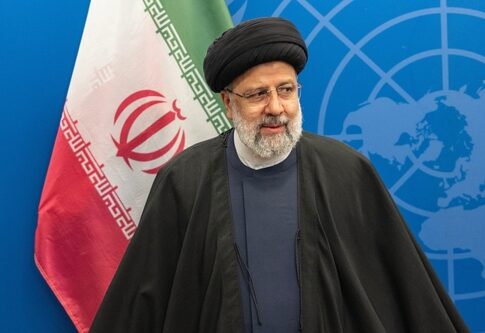In a disturbing revelation, Microsoft has reported that Iran is ramping up its efforts to interfere in the 2024 U.S. presidential election, utilizing sophisticated cyber strategies designed to exploit America's deep political divisions. The tech giant's Threat Analysis Center disclosed these findings on Friday, underscoring Tehran's evolving tactics that aim to sow discord and possibly sway the election outcome.
According to the report, Iranian cyber groups linked to the Islamic Revolutionary Guard Corps (IRGC) are targeting key figures and institutions involved in the upcoming election. One of the most alarming incidents involved a spear phishing attack on a high-ranking official from a presidential campaign. The phishing attempt, which originated from a compromised email account of a former senior advisor, was designed to extract sensitive information. Although Microsoft did not specify which campaign was targeted, the incident has raised significant concerns about the integrity of the election process.
Iran is accelerating online activity that appears intended to influence the U.S. election, in one case targeting a presidential campaign with an email phishing attack, Microsoft says. https://t.co/Mk0Qv53gO7
— NBC Bay Area (@nbcbayarea) August 9, 2024
In addition to direct cyberattacks, Iranian groups have also been setting up fake partisan news websites aimed at inflaming political tensions. These sites, often posing as legitimate news sources, publish content tailored to stoke anger on both sides of the political spectrum. For instance, one site, posing as a left-wing outlet, viciously attacked former President Donald Trump with derogatory language, while another, targeting conservative readers, focused on hot-button cultural issues like LGBTQ rights. Microsoft suggests that these sites may be using AI-driven tools to create and plagiarize content, further complicating efforts to track and counteract their influence.
This surge in activity is not unprecedented. Iranian cyber actors have been involved in previous U.S. election cycles, but their tactics have grown more sophisticated and aggressive. U.S. intelligence officials have expressed concern that Tehran's efforts are primarily aimed at undermining candidates who are perceived to be hostile toward Iran—particularly those associated with the Trump administration.
Iran is stepping up its influence campaign aimed at the U.S. election, with an apparent goal of sowing division, researchers at Microsoft said in a new report. https://t.co/vbWhitVXek
— NBC News (@NBCNews) August 9, 2024
This comes as part of a broader Iranian strategy to avoid a repeat of the high tensions experienced during Trump's presidency, which saw the U.S. withdrawal from the Iran nuclear deal and the assassination of IRGC General Qasem Soleimani.
Microsoft's report also highlights other foreign threats to the U.S. election, including from Russia and China, though it emphasizes that Iran's operations are uniquely focused on exacerbating America's internal divisions. The use of generative AI by these adversaries is particularly concerning, as it allows for the rapid creation of highly realistic fake images, videos, and articles, making it more difficult for voters to discern truth from fabrication.
Iran's United Nations mission has denied any intentions to interfere in the U.S. election, claiming that its cyber capabilities are purely defensive. However, these denials are contradicted by the evidence presented in Microsoft's report and by the ongoing concerns from U.S. officials. In one recent incident, a Pakistani man with ties to the IRGC was arrested in the U.S. for allegedly plotting to assassinate several government officials, a plan that U.S. authorities believe was linked to Tehran's broader strategy of retaliation for the Soleimani strike.
As the 2024 election approaches, the risk of foreign interference remains a critical issue. With Microsoft and U.S. intelligence agencies on high alert, efforts to protect the integrity of the election are intensifying. However, the full extent of Iran's influence operations, and their potential impact on the election, may not be known until much later.

